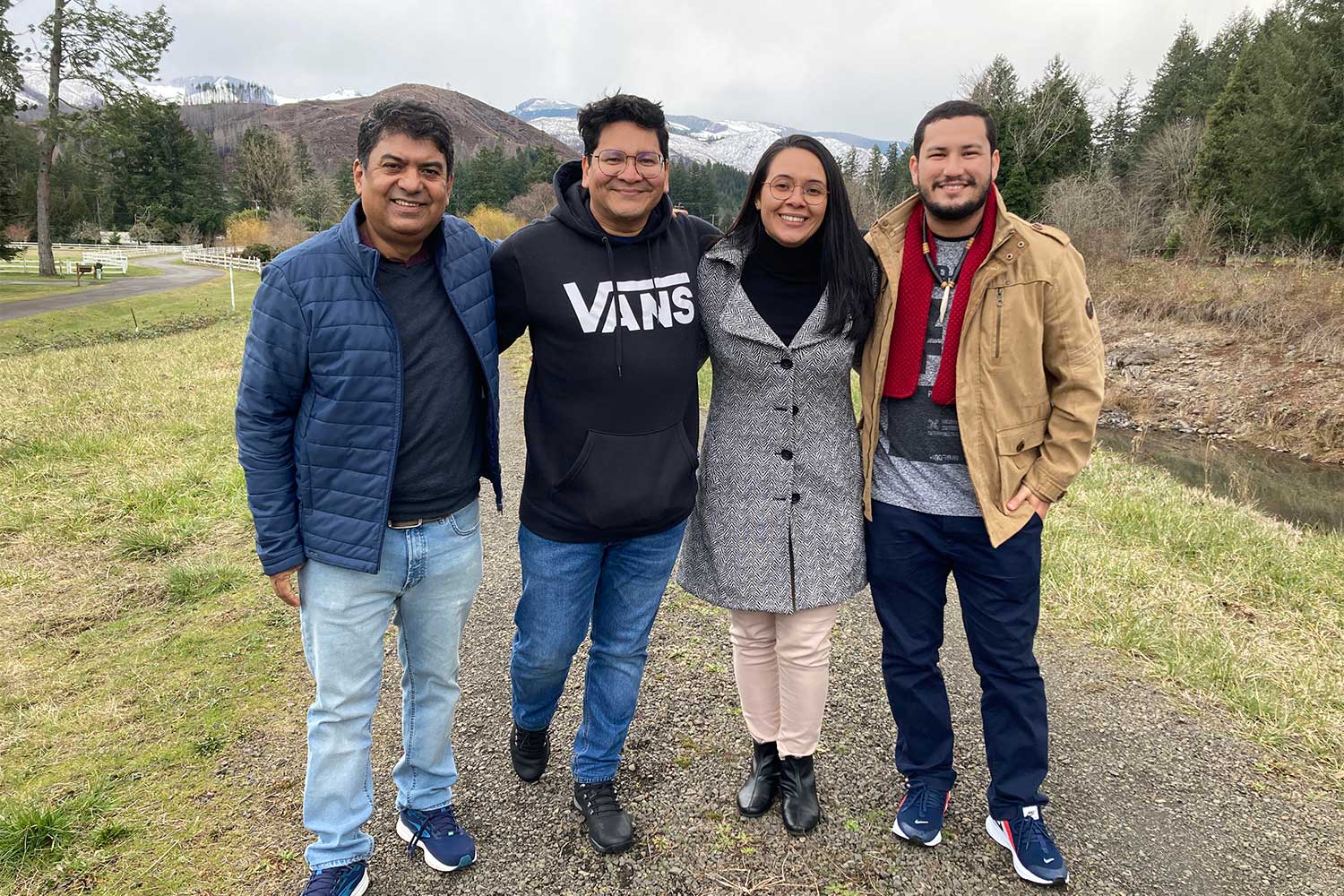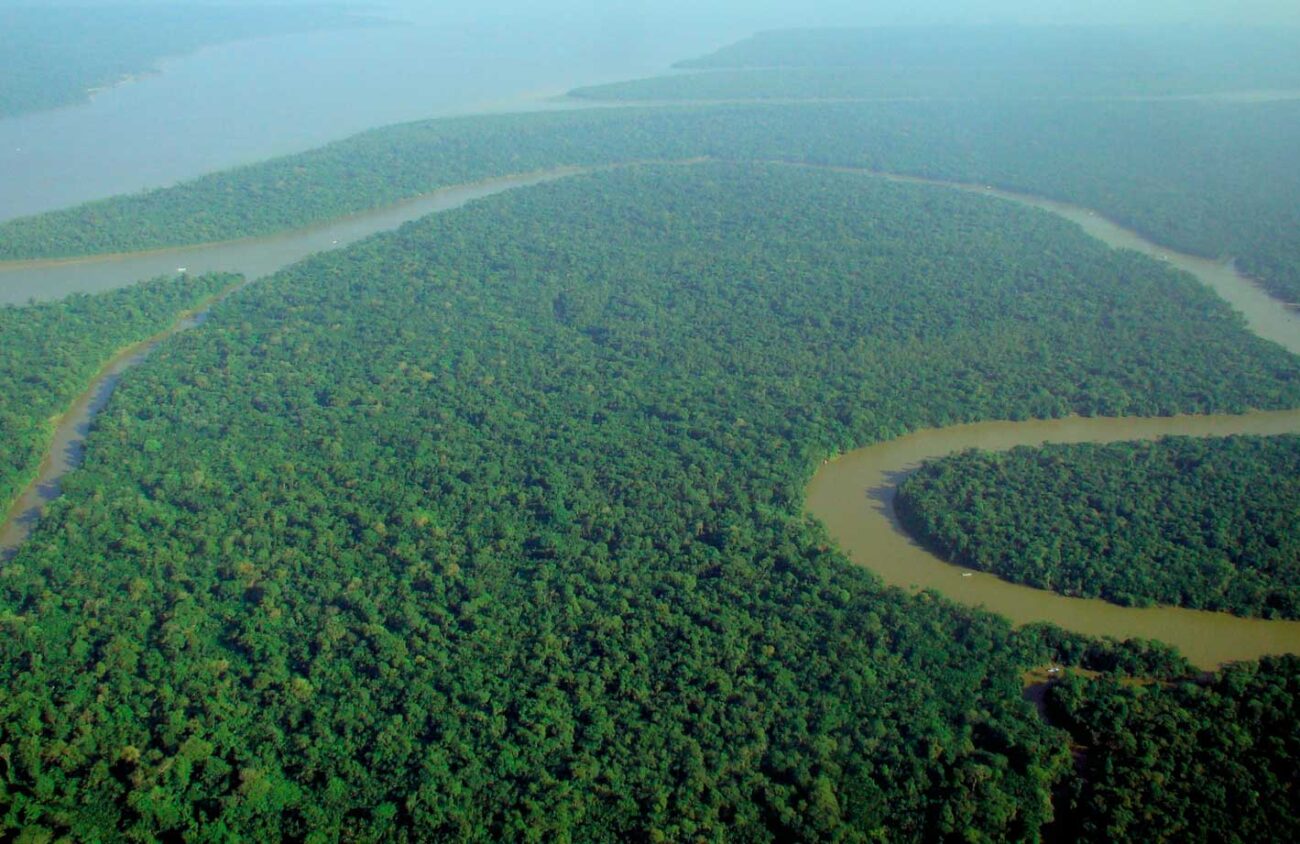Pro bono publico is Latin for “in the public interest,” and refers to free work done by lawyers or other professionals to provide services to people or organizations that otherwise can’t afford it. And since many people can’t afford lawyers, and since habitats and animals can’t advocate for themselves, without these services, nothing changes for those without access to power. Pro bono work is crucial in that it can make concrete changes, from laws and policies to constitutions, for the public good.
Before 2015, pro bono work wasn’t legal in Brazil. The Brazilian Federal Constitution states that the government should provide free legal aid for Brazilians and foreign persons living in the country, but the government can’t support everyone needing aid, and if nongovernmental attorneys could not work pro bono, then marginalized people and communities and environments would — and still do — get passed by without professionals advocating for them.
From March 1 to 3, pro bono Brazilian and Indigenous attorneys will be among the presenters at the Public Interest Environmental Conference (PIELC) at the University of Oregon discussing the work being done in their communities to protect sacred lands and defend human rights.
According to a study published by Nature last April, deforestation in Indigenous territories in the Amazon has increased by 129 percent since 2013.
Nature states that about 700,000 Indigenous people live in the Indigenous territories. Over half of these territories are within the Amazon and cover over 386,102 square miles of rainforest, which are crucial for climate regulation, carbon storage and biodiversity protection.
“All Indigenous land, which is a large chunk of the Brazilian Amazon, are the best-preserved habitats in the entirety of South America. The relationship to the land is just different than that of others,” says Prof. Lucas Silva, who is the primary investigator at the Soil-Plant-Atmosphere Lab at the University of Oregon. “They provide an example of how conservation can be done.”
This makes Brazil’s deforestation both a social and an environmental justice issue. If land rights could be ensured for the Indigenous people who live in the rainforest, the territories could decrease deforestation by 66 percent, protecting both the critical habitat and the home of these peoples. And the effects of deforestation don’t end where the deforestation ends.
“The more you cut down the forest, the less transpiration you have to the atmosphere. And then the less rainfall you have for the whole region,” Silva says. “The Brazilian Amazon, in particular, has a big responsibility with the rest of the region with a lot of the moisture that goes towards the other countries in South America. The deforestation in Brazil could affect the regional hydrological cycle.”
So securing land rights in Indigenous territories in the Amazon also helps protect habitats and livelihoods in neighboring areas. But you need lawyers — who are often expensive — to read through all the boring, confusing and convoluted paperwork to secure land rights.
With the help of Marcos Fuchs, founder and executive director of the Instituto Pro Bono, pro bono work was finally included in the new Brazilian Bar Association Code of Ethics in 2015. The Instituto Pro Bono, which was created in 2001, was the first law firm in Brazil that had the capability and mission to serve vulnerable populations and civil society organizations — free of charge — to combat inequality in access to justice.
To put it in perspective, the American Bar Association says that practicing lawyers should aim for 50 hours of pro bono legal work per year, and almost every U.S. state has ethical rules that encourage lawyers to give pro bono services.

Nadia de Matos Barros is the deputy director at the Instituto Pro Bono and is one of a few members of Instituto Pro Bono who will present at PIELC. On Friday she will be translating a panel of Indigenous lawyers working to protect the Amazon, and on Saturday she will be leading a workshop titled “Moving through Ecologies of the Global South.” She is one of more than 40 visitors that the Environmental Law Alliance Worldwide (ELAW) is bringing to Eugene for its annual meeting in the days before PIELC.
Barros has been working at the Instituto Pro Bono since she was in law school at the University of Sao Paulo.
“What has most impacted me doing this work is challenging the relationship between lawyers and pro bono clients to a more empathic one — engaging lawyers, who have a very technical education in Brazil, with social issues, and approaching beneficiaries of our projects as protagonists,” Barros says.

Together with the first-ever Indigenous lawyer in Brazil, Paulo Celso de Oliveira, Barros created the National Indigenous Lawyers Network, which opened up a new field of advocacy in Brazil, she tells Eugene Weekly. Celso, who will also be attending PIELC, is from the Pankararu Indigenous people in Pernambuco, northeastern Brazil, and is a partner at Advocacy for Human Rights and a board member at the Instituto Pro Bono. He came to Eugene in 1996 for an ELAW fellowship and now is a mentor to Indigenous attorneys across Brazil.
Strengthening the network and work of Indigenous lawyers could be pivotal in situations like the humanitarian crisis that has been unfolding in the Yanomami Indigenous Territory, where illegal gold miners have brought disease and violence to Brazil’s largest Indigenous territory. Shortly after President Luiz Inácio Lula da Silva took office in January 2023, the Ministry of Health declared a medical emergency in the territory, but according to multiple reports, violence and widespread illness still plague the area.
Barros also was crucial in the creation of the National Pro Bono Climate Litigation Network and key in the global Stop Ecocide campaign in Brazil. This worldwide campaign raises awareness of ecocide, the widespread and long-term destruction of ecosystems, and through a growing network of lawyers, diplomats and people across numerous civil sectors, are working to make ecocide an international crime.
Instead of prosecuting or fining companies that usually have the financial means to budget for these situations in which they incur such fines, making ecocide a crime would allow for criminal prosecution of individuals in charge of decisions responsible for environmental destruction.
South of the Amazon, the Cerrado savanna is also facing extreme habitat degradation. The driver behind the destruction is cattle ranching, which according to a study published in Plants, People, Planet journal, is responsible for 80 percent of deforestation in the country. Another study by Nature states that half of the Cerrado has been cleared and converted to grazing land.
In June 2023, Brazil introduced an ecocide bill to its congress, and in November the bill was voted through the Environment and Sustainable Development Committee of the Deputies Chamber of the Brazilian Congress. However, according to Barros, the bill is still in its beginning stages.
“I’m glad the lawyers are working on this. There’s only so much the science can do,” Silva tells EW. “We need political scientists, we need lawyers, we need an interdisciplinary approach to look at this whole thing holistically.”
